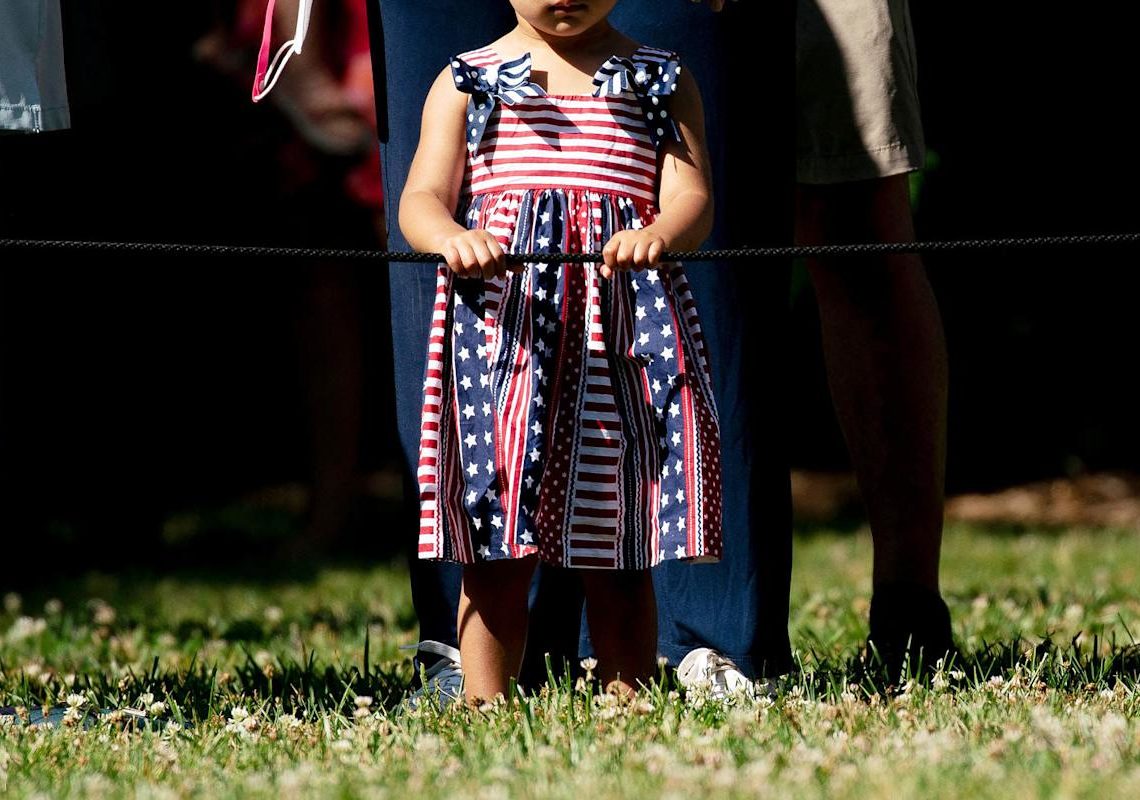WASHINGTON — Supreme Court justices on Thursday expressed concerns about allowing President Donald Trump’s radical reinterpretation of the Constitution’s guarantee of birthright citizenship to go into effect while litigation continues.
In an unusual move, the court heard oral arguments on a series of Trump administration emergency requests seeking to limit the scope of nationwide injunctions that blocked the plan almost as soon as it was announced in January.
In more than two hours of oral argument, the justices vigorously debated various ways to limit the number of nationwide injunctions, but on the birthright citizenship issue specifically a majority appeared to think such an approach may have been justified, especially in cases brought by states.
Even if the Trump administration loses on its efforts to narrow injunctions in the birthright citizenship cases, any decision that sets new limits on such nationwide injunctions could help the administration implement other policies via executive actions, many of which have also been blocked by lower court judges.
There is also a chance the court could change course and quickly take up the merits of Trump’s proposal, with several justices indicating the administration would lose. That would allow the court to quickly reach a definitive decision on the subject.
The argument as it related to birthright citizenship specifically centered on whether a nationwide injunction was justified for the 22 states that sued, led by New Jersey and Washington state. The question of what the justices could do with a third case brought by individual plaintiffs and immigrant rights groups was less clear. In all three cases, judges issued nationwide injunctions.
In court Thursday, New Jersey Solicitor General Jeremy Feigenbaum told the justices that the states need a nationwide injunction because the imposition on each state caused by the plan could not be remedied by a state-specific injunction. He pointed out, for example, that people constantly move between states and there would be “chaos on the ground where people’s citizenship turns on and off when you cross state lines,” depending on how states deal with the issue.
He noted that each year, New Jersey alone has 6,000 babies that were born elsewhere and the state would have to determine whether they were citizens to determine whether they are eligible for certain benefits.
Two justices in the court’s conservative majority, Neil Gorsuch and Amy Coney Barrett, both seemed sympathetic to those arguments.
“Why wouldn’t they be entitled to an injunction of the scope of the one that has currently been entered?” Barrett said to Solicitor General D. John Sauer, who was arguing the case on behalf of the Trump administration.
Gorsuch pushed back when Sauer dismissed that argument on the grounds that it would justify nationwide injunctions in almost any case.
“What do you say, though, to the suggestion, General, that in this particular case, those patchwork problems for, frankly, the government as well as for plaintiffs, justify broader relief?” he asked.
Fellow conservative Justice Brett Kavanaugh also asked Sauer skeptical questions about the practical problems with blocking Trump’s executive order in some parts of the country but not others.
“What do hospitals do with a newborn? What do states do with a newborn?” he asked.
Kavanaugh also wondered if the federal government would be able to come up with a workable plan in the 30 days the order gave for agencies to implement it.
“You think they can get it together in time?” he asked.
The three liberal justices all seemed solidly opposed to allowing the birthright plan to go into effect, even if they agreed that there should be some limitations on nationwide injunctions.
“Let’s just assume you’re dead wrong,” Justice Elena Kagan told Sauer about the legality of Trump’s order.
Justice Sonia Sotomayor, meanwhile, told Sauer the proposal violates four Supreme Court precedents. The alternative he proposed of allowing people to file class action lawsuits to vindicate their rights “makes no sense whatsoever,” she added.
The justices have not yet agreed to take up the bigger legal question of whether Trump’s plan comports with the Constitution’s 14th Amendment, which states: “All persons born or naturalized in the United States, and subject to the jurisdiction thereof, are citizens of the United States.”
The longstanding interpretation of the provision as understood by generations of Americans, including legal scholars on the left and right, is that anyone born on U.S. soil is an American citizen with a few minor exceptions, including people who are the children of diplomats.
As part of Trump’s hard-line immigration policy, he wants to limit birthright citizenship to people who have at least one parent who is a U.S. citizen or is a permanent U.S. resident.
During the oral argument, the underlying question of whether Trump’s plan is lawful was frequently mentioned, with some discussion of how quickly the Supreme Court could ultimately rule on it.
One concern raised by Kagan was that if there are no nationwide injunctions and the government keeps on losing in lower courts, it may never ask the Supreme Court to weigh in, allowing it to continue to implement the plan in some form.
Conservative Justice Samuel Alito, meanwhile, expressed frustration that the Supreme Court might not rein in the power of judges as described in Article III of the Constitution.
“The practical problem is that there are 680 district court judges, and they are dedicated and they are scholarly, and I’m not impugning their motives in any way,” he said. “But you know, sometimes they’re wrong, and all Article III judges are vulnerable to an occupational disease, which is the disease of thinking that I am right and I can do whatever I want,” he added.
Trump first seized upon the fringe legal theory to limit birthright citizenship during his first term as a way to rally his base. It has been promoted by some right-wing anti-immigration groups as well as John Eastman, one of Trump’s former legal advisers during his attempts to overturn the 2020 election.
“Birthright Citizenship was not meant for people taking vacations to become permanent Citizens of the United States of America, and bringing their families with them, all the time laughing at the ‘SUCKERS’ that we are!” Trump said in a Truth Social post Thursday morning.
Activists supporting the current interpretation of birthright citizenship gathered outside the court ahead of the arguments, holding signs and chanting slogans. “Trump must go now,” one banner said.
In line with the historical understanding of the 14th Amendment, every court that has ruled on the plan so far has blocked it. Trump filed three separate emergency applications at the Supreme Court seeking to narrow the injunctions issued by judges in Maryland, Massachusetts and Washington state.
The Trump administration has complained vociferously about judges who have issued “universal injunctions” blocking various policies rolled out during the president’s first few months in office. The Justice Department says there have been 40 such rulings on a host of issues, including the administration’s ban on transgender people serving in the military, which the Supreme Court recently allowed to go into effect.
Trump has relied in large part on aggressive executive orders to enact his agenda, rather than seeking legislation from Congress or regulatory actions by federal agencies.
The administration’s argument is that federal judges simply do not have the authority to issue broad rulings that affect people other than the litigants appearing before them.
In response, the challengers say that on an issue like birthright citizenship, a nationwide injunction is appropriate in part because it is vital to have uniformity on such a fundamental right.
The administration has asked the court to limit the injunctions to individual people or organizations that sued, and potentially the 22 states that filed separate lawsuits on birthright citizenship.
Depending on what action the court takes, the proposal could go into effect in more than half of all U.S. states but not others, or against anyone who has not themselves sued or is not a member of the immigrant advocacy organizations CASA and the Asylum Seeker Advocacy Project.
This article was originally published on NBCNews.com
The post Supreme Court appears skeptical of allowing Trump to implement birthright citizenship plan appeared first on NBC News.



